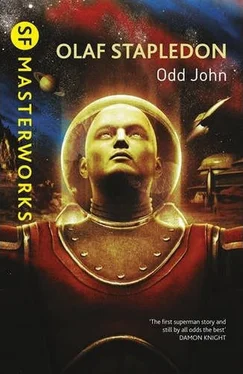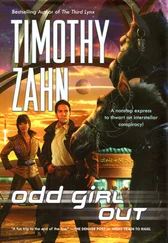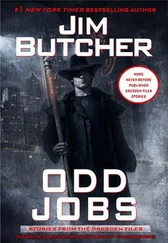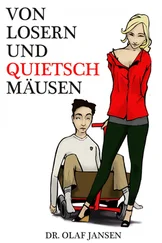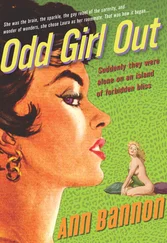Olaf Stapledon - Odd John
Здесь есть возможность читать онлайн «Olaf Stapledon - Odd John» весь текст электронной книги совершенно бесплатно (целиком полную версию без сокращений). В некоторых случаях можно слушать аудио, скачать через торрент в формате fb2 и присутствует краткое содержание. Город: London, Год выпуска: 2012, ISBN: 2012, Издательство: Hachette UK, Жанр: Фантастика и фэнтези, на английском языке. Описание произведения, (предисловие) а так же отзывы посетителей доступны на портале библиотеки ЛибКат.
- Название:Odd John
- Автор:
- Издательство:Hachette UK
- Жанр:
- Год:2012
- Город:London
- ISBN:9780450038570
- Рейтинг книги:5 / 5. Голосов: 1
-
Избранное:Добавить в избранное
- Отзывы:
-
Ваша оценка:
- 100
- 1
- 2
- 3
- 4
- 5
Odd John: краткое содержание, описание и аннотация
Предлагаем к чтению аннотацию, описание, краткое содержание или предисловие (зависит от того, что написал сам автор книги «Odd John»). Если вы не нашли необходимую информацию о книге — напишите в комментариях, мы постараемся отыскать её.
Odd John — читать онлайн бесплатно полную книгу (весь текст) целиком
Ниже представлен текст книги, разбитый по страницам. Система сохранения места последней прочитанной страницы, позволяет с удобством читать онлайн бесплатно книгу «Odd John», без необходимости каждый раз заново искать на чём Вы остановились. Поставьте закладку, и сможете в любой момент перейти на страницу, на которой закончили чтение.
Интервал:
Закладка:
Thus it was that in the first phase of John’s commercial life it fell to me to play the part of hard-headed business man. Unfortunately, as was said, I myself was extremely ill-equipped for the task, and at the outset we parted with several good inventions for a price which we subsequently discovered to be ludicrously inadequate.
But in spite of early disasters we were in the long run amazingly successful. We launched scores of ingenious contrivances which have since become universally recognized as necessary adjuncts of modern life. The public remarked on the spate of minor inventions which (it was said) showed the resilience of human capacity a few years after the war.
Meanwhile our bank balance increased by leaps and bounds, while our expenses remained minute. When I suggested setting up a decent workshop in my name in a convenient place, John would not hear of it. He produced a number of poor arguments against the plan, and I concluded that he was determined to cling to his lair for no reason but boyish love of sensationalism. But presently he divulged his real reason, and it horrified me. “No,” he said, “we mustn’t spend yet. We must speculate. That bank balance must be multiplied by a hundred, and then by a thousand.”
I protested that I knew nothing about finance, and that we might easily lose all we had. He assured me that he had been studying finance, and that he already had a few neat little plans in mind. “John,” I said, “you simply mustn’t do it. That’s the sort of field where sheer intelligence is not enough. You want half a lifetime’s special knowledge of the stock market. And anyhow it’s nearly all luck.”
It was no use talking. After all, he had good reason to trust his Own judgment rather than mine. And he gave evidence that he had gone into the subject thoroughly, both by reading the financial journals and by ingratiating himself with local stockbrokers on the morning and evening trains to town. He had by now passed far beyond the naive child that had interviewed Mr. Magnate, and he was, as ever, an adept at making people talk about their own work.
“It’s now or never,” he said. “We’re entering a boom, inevitable after the war; but in a few years we shall be in the midst of such a slump that people will wonder if civilization is going smash. You’ll see.”
I laughed at his assurance, and was treated to a lecture on economics and the state of Western society, the sort of thing that in eight or ten years was to be generally accepted among the more advanced students of social problems. At the end of this discourse John said, “We’ll put half our capital into British light industry—motors, electricity and so on, because that sort of thing is bound to go ahead, comparatively. The rest we’ll use for speculation.”
“We’ll lose the whole lot, I expect,” I grumbled. Then I tried a new line of attack. “Anyhow isn’t all this money-making a bit too trivial for Homo superior ? I believe you’re bitten by the speculation bug after all. I mean, what is the object of it all?”
“It’s all right, Fido, old thing,” he answered. (It was about this time that he began to use this nickname for me. When I protested, he assured me that it was meant to be Phaido , which name, he said, was connected with the Greek for “brilliant.”) “It’s all right. I’m quite sane still. I don’t care a damn about finance for its own sake, but in the world of Hom. sap . it’s the quickest way to get power, which means money. And I must have money, big money. Now don’t snort! We’ve made a good little start, but it’s only a start.”
“What about ‘advancing the spirit,’ as you called it?”
“That’s the goal, all right; but you seem to forget I’m only a child, and very backward too, in all that really matters. I must do the things I can do before the things I can’t yet do. And what I can do is to prepare—by getting ( a ) experience, ( b ) independence. See?”
Evidently the thing had to be. But it was with grave misgiving that I agreed to act as John’s financial agent; and when he insisted on indulging in various wild speculations against my advice, I began to tell myself that I had been a fool to treat him as anything but a brilliant child.
John’s financial operations did not spontaneously hold his attention as his practical inventions had done. And by now both kinds of activity were being subordinated increasingly to the study of human society and the absorbing personal contacts which came to him with adolescence. There was a certain absent-mindedness and dilatoriness about his buying and selling of stock, very exasperating to me, his agent. For though most of our common fortune was in my name, I could never bring myself to act without his consent.
During the first six months of our speculative ventures we lost fan more than we gained. John at last woke up to the fact that if we went on this way we should lose everything. After hearing of a particularly devastating disaster he indulged in a memorable outburst. “Blast!” he said. “It means I must take this damned dull game much more seriously. And there’s so much else to be done just now, far more important in the long run. I see it may be as difficult for me to beat Hom. sap . at this game as it is for Hom. sap . to beat apes at acrobatics. The human body is not equipped for the jungle, and my mind may not be equipped for the jungle of individualistic finance. But I’ll get round it somehow, just as Hom. sap . got round acrobatics.”
It was characteristic of John that when he had made a serious mistake through lack of experience he never tried to conceal the fact. On this occasion he recounted with complete detachment, neither blaming nor excusing himself, how he, the intellectual superior of all men, had been tricked by a common swindler. One of his financial acquaintances had evidently guessed that the boy’s interest in speculation had ulterior sources, in fact that some adult with money to invest was using him as a spy. This individual proceeded to treat John extremely well, and to “prattle to him about his ventures,” anxiously pledging him to secrecy. In this way Homo superior was completely diddled by Homo sapiens . John insisted that I should put large sums of money into concerns which his friend had advocated. At first I refused; but John was blandly confident in his alleged “inside information that it’s an absolute scoop,” and finally I consented. I need not recount the history of these disastrous speculations. Suffice it that we lost everything that we had risked, and that John’s friend disappeared.
For some time after this disaster we refrained from speculation. John spent a good deal of his time away from home and away from his workshop also. When I asked what he had been up to, he usually said, “studying finance,” but refused any further information. During this period his health began to deteriorate. His digestion, always his weakest spot, gave him some trouble, and he complained of headaches. Evidently he was leading a rather unwholesome life.
He began to spend many of his nights away from home. His father had relatives in London, and increasingly often John was allowed to visit them. But the relatives did not for long tolerate his independence. (He disappeared every morning and returned late at night or not till the next day, and refused to give an account of his actions.) Consequently these visits had to cease. But John, meanwhile, had learnt that, in summer, he could live the life of a stray cat in the Metropolis, in spite of the police. To his parents he said that he knew “a man who had a flat who would let him sleep there any night.” Actually, as I learned much later, he used to sleep in parks and under bridges.
Читать дальшеИнтервал:
Закладка:
Похожие книги на «Odd John»
Представляем Вашему вниманию похожие книги на «Odd John» списком для выбора. Мы отобрали схожую по названию и смыслу литературу в надежде предоставить читателям больше вариантов отыскать новые, интересные, ещё непрочитанные произведения.
Обсуждение, отзывы о книге «Odd John» и просто собственные мнения читателей. Оставьте ваши комментарии, напишите, что Вы думаете о произведении, его смысле или главных героях. Укажите что конкретно понравилось, а что нет, и почему Вы так считаете.
